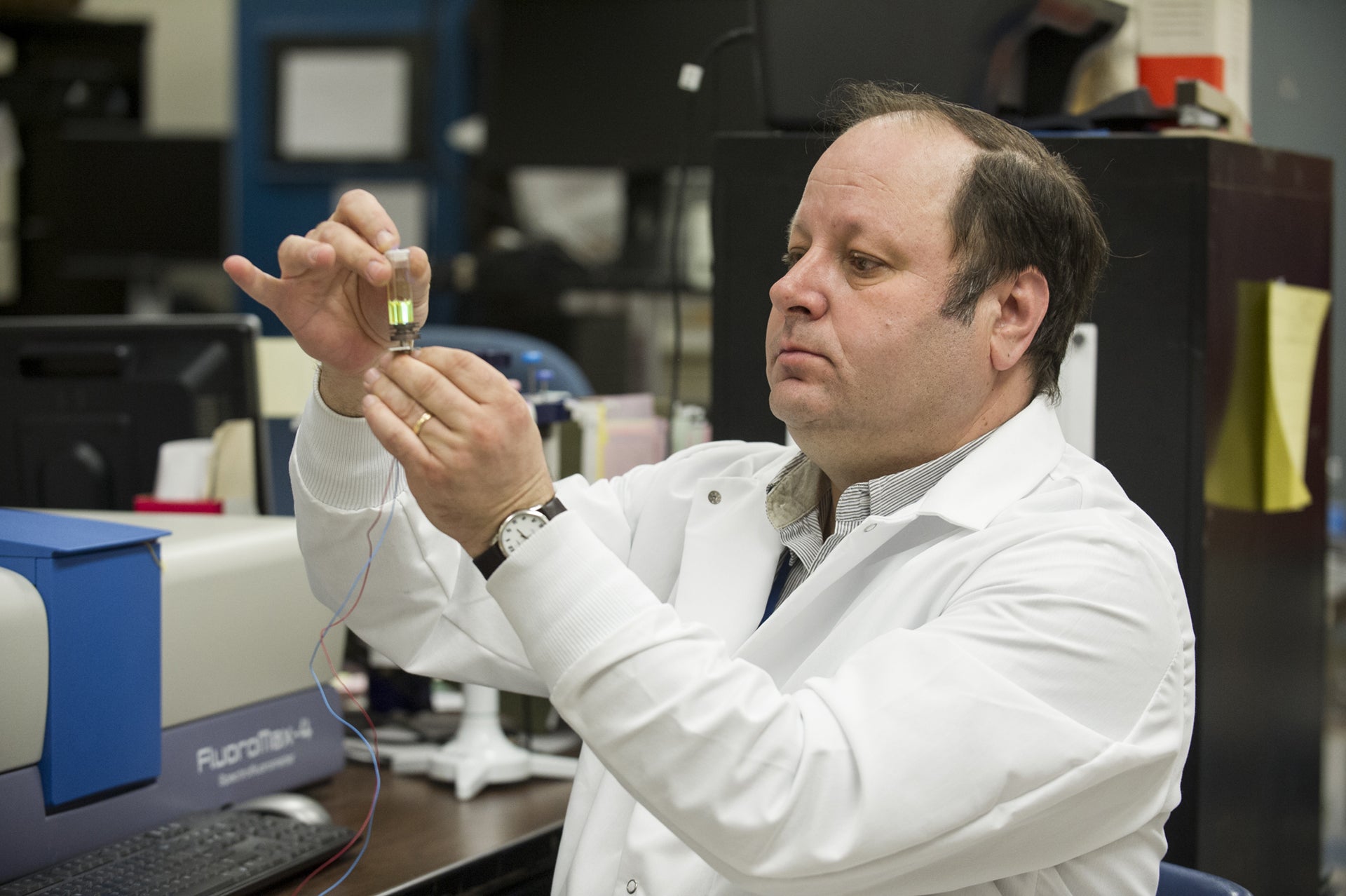
In spite of tremendous progress in cancer treatment, the number of new cases and subsequent deaths from the disease is on the rise. Two of the most effective methods of treatment are radiotherapy and chemotherapy. Although simultaneous application of these therapies is anticipated to significantly enhance the clinical response to treatment, this approach is seriously impeded by the high toxicity presented by the systemic chemotherapy.
An innovative solution to this problem has been recently patented by Daniel Fologea, professor of biophysics in the Department of Physics and Biomolecular Sciences Graduate Program. Fologea designed and developed liposomes loaded with anticancer drugs, capable of self-accumulating into tumors and enabling local drug release during radiotherapy. This concomitant, highly localized radiotherapy and chemotherapy approach can be now applied to achieve an improved clinical outcome through increased drug concentrations and supra-additive effects.
In addition, minimizing the exposure of normal tissues to anticancer drugs is anticipated to significantly mitigate the side effects of systemic chemotherapy.
To advance this research towards commercialization, Daniel Fologea benefits from an NSF Transform grant for marketed oriented research projects with Denise Wingett as co-principal investigator. This grant provided strong collaboration opportunities with medical schools, academic institutions and biotech companies from the United States and abroad.